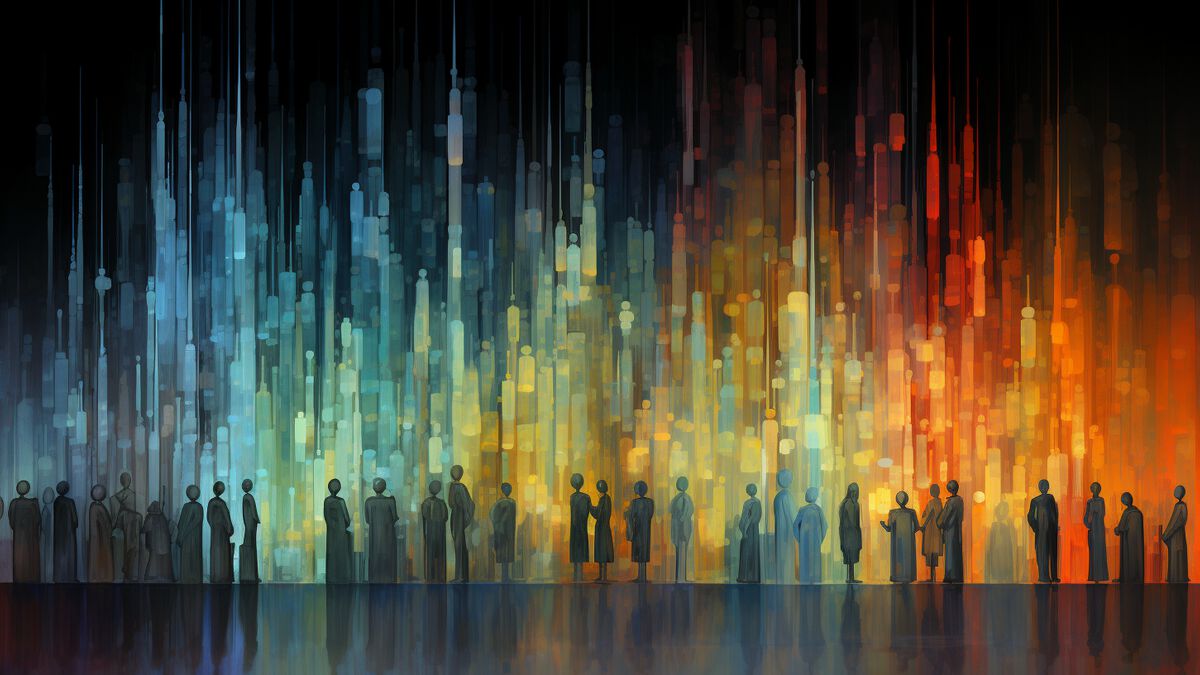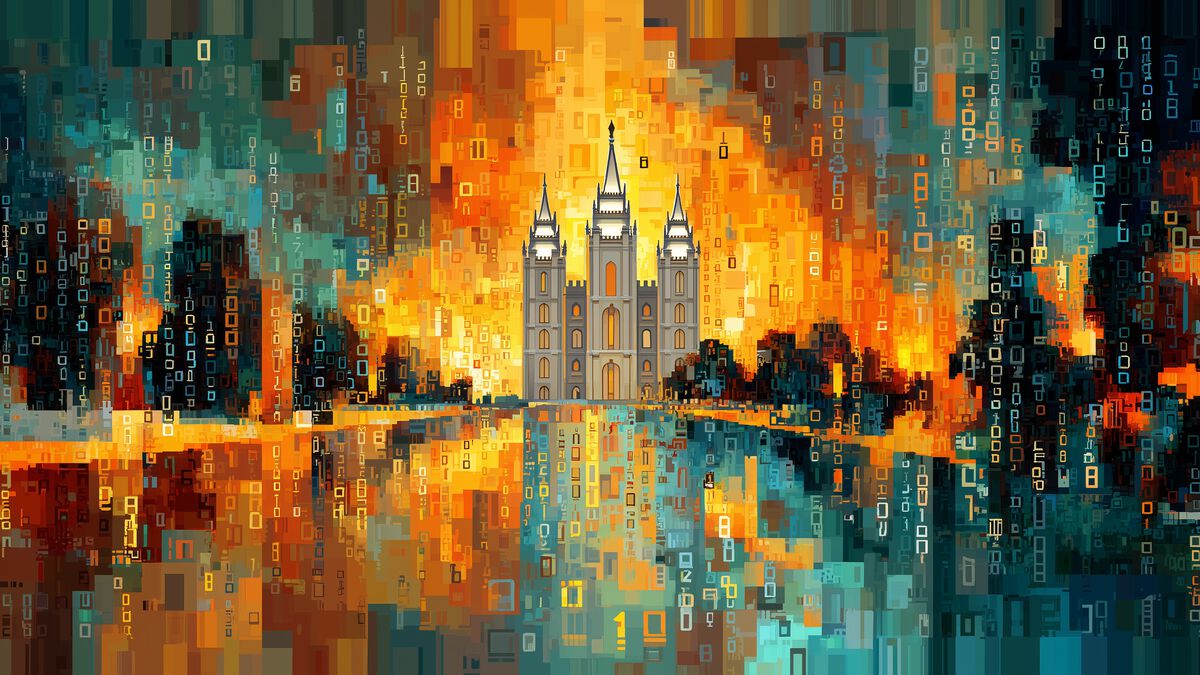Creation Argument
The Creation Argument is part of the New God Argument. It is a logical argument for trust that superhumanity probably created our world. The basic idea is that humanity probably would not be the only or first to create many worlds emulating its evolutionary history, so it probably will never create many such worlds unless it is already in such a world. If we trust in our own superhuman potential, we should trust that superhumanity created our world.
This is a list of articles that Lincoln Cannon has written about the Creation Argument of the New God Argument. A full archive of all articles that Lincoln has published since 2005 is also available. You may also search for articles and other content that's available on any of Lincoln's websites.
-

New God Argument Version 3.4
On Saturday 3 August, I presented the New God Argument at the Sunstone conference in Salt Lake City. As part of the presentation, I simplified the formulation of the Compassion Argument slightly. And I spent more time than usual elaborating on how the first assumption of the Compassion Argument arises ... -

Still Insane for Believing the Simulation Hypothesis
A decade ago, Blake Ostler called me insane for believing in the Simulation Hypothesis. Today, a friend brought to my attention that Blake recently doubled-down on that characterization, in an episode of an Exploring Mormon Thought podcast, asserting that people like me “have serious problems in assessing reality.” My response? ... -

You Should Hope You're Living in a Computed World
Celebrity technologist Elon Musk recently suggested that we may be living in a computer simulation. Of course this made technology news headlines around the world. And of course many articles have rushed to reassure their readers that Elon’s suggestion is “outlandish”. Outlandish or not, however, Elon suggested something far more ... -

New God Argument Version 3.0
Below is an experimental formulation (version 3.0) of the New God Argument. Those familiar with previous formulations of the argument will note the following changes. First, I combined all assumptions about human futurity into the Faith Assumption. Second, I dropped the Angel Argument because its conclusion is redundant with that ... -

11 Reasons Neil DeGrasse Tyson Didn't Debunk Religion
An article at Atlanta Blackstar presents “11 Neil DeGrasse Tyson Quotes That Debunk ‘Religious Science’,” or at least purports to do so. Here are my thoughts on the quotes, including the bonus quote thrown in at the beginning of the article. “Every account of a higher power that I’ve seen ... -

Sam Harris Asks, Should We Be Mormons in the Matrix?
In a recent post to his blog, Sam Harris asks, “Should we be Mormons in the Matrix?” Sam is (in)famous for his atheism and anti-religiosity. He has authored bestselling books The End of Faith and Letter to a Christian Nation. And he has commented in the past that “Mormonism is ... -

The Big Bang from Posthuman Computers in Black Holes?
A friend asked for my opinion on what came before the big bang. I’m not a physicist or cosmologist, but I read enough to have (dangerous) opinions that might provoke imagination in productive directions. With that disclaimer, here are my thoughts. First, maybe there wasn’t a big bang. Clearly, scientific ... -

New God Argument Version 2.0
Below is the revised summary of the New God Argument, as presented today at the annual meeting of the Society for Mormon Philosophy and Theology. Those who are familiar with the argument will recognize that we renamed the Charity Arguments to “the Benevolence Argument” and focused in on one of ... -

The New God Argument Begins
This is a transcript of the original presentation of the New God Argument by Chris Bradford, Joseph West, and Lincoln Cannon at the Sunstone symposium in Salt Lake City on 9 August 2008. “I want to ask this congregation, every man, woman and child, to answer the question in their ... -

New God Argument Version 1.0
Abstract: If basic life forms are probable then we should trust that advanced civilizations are probable. If any advanced civilization probably has increased in destructive capacity faster than defensive capacity, and if any advanced civilization probably creates many worlds like those in its past, then we should trust that an ... -

Generalized Simulation Argument
I’ve written time and again about the Simulation Argument, particularly as formulated by Oxford philosopher Nick Bostrom. Here’s one way to express the gist of the argument: Simulation Argument – Either (A) we’re almost certainly living in an ancestor simulation, or (B) we’ll almost certainly never create many ancestor simulations. ... -

I'm Insane, Blake Ostler Tells Me
While at the recent symposium organized by the Sunstone Education Foundation in Salt Lake City, I attended a presentation by Blake Ostler. Blake was making an argument about spiritual experience, the details of which are not the subject of this post. During the presentation, he noted that one might appeal ...